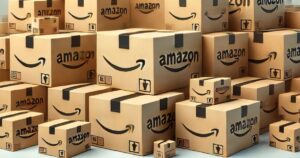
Amazon Wholesale has become a popular business model for many sellers looking to tap into Amazon’s vast marketplace. Wholesale selling gives sellers the opportunity to access and sell established brands while reaping the benefits of wholesale discounts – thereby maximizing profit margins. It’s no wonder that Amazon Wholesale is attracting a lot of attention. However, like any business model, Amazon Wholesale comes with risks and benefits. This article explores Amazon Wholesale and the associated risks and benefits to your Amazon business.
How to Use Amazon Wholesale Properly
Sellers are rushing towards Amazon Wholesale because it provides a way to access branded products without having a direct relationship with the brand. This is particularly attractive because it allows sellers to bypass the often stringent terms and conditions that many brands impose on their direct or authorized distributors. By sourcing products from wholesale suppliers, sellers can get their hands on branded products at discounted prices and sell them on Amazon for high profit margins.
To start selling wholesale products on Amazon, sellers need to understand the intricacies of the business model. Product authenticity is crucial, and sellers must adhere to Amazon’s policies to avoid issues such as intellectual property infringement, or the sale of counterfeit, diverted goods, or stolen goods. Amazon maintains several policies that focus on product authenticity including the Anti-Counterfeiting Policy, Intellectual Property Policy for Sellers, the Unsuitable Inventory Investigations Policy, and the Responsible Sourcing Documentation Request Requirements Policy.
While Amazon maintains strict requirements relating to product authenticity, it does not enforce a manufacturer or brand’s minimum advertised price (MAP). This allows sellers to purchase bulk wholesale orders from their wholesale supplier(s) and pass their discounts along to Amazon customers. A lower selling price makes it more likely that Amazon customers will view your product listings.
Product Authenticity and the First Sale Doctrine
The First Sale Doctrine is a legal principle that allows the resale of branded products without the need for authorization from the brand owners as long as the products are genuine and unmodified. Although the First Sale Doctrine is firmly established by statute and common law, the First Sale Doctrine is not absolute; sellers must ensure the authenticity of their products and maintain adequate supply chain documentation to dispute any intellectual property infringement complaints. Sellers must also adhere to a brand’s quality controls to ensure their products are not materially different from products that might be purchased directly from the brand or one of the brand’s authorized distributors. This is vital to avoid violating Amazon’s policies and to maintain the integrity of an Amazon Wholesale business.
Additional information about the First Sale Doctrine can be found here.
Amazon Policies on Product Authenticity
Amazon has implemented various policies to maintain product authenticity to protect customers and other sellers. The Anti-Counterfeiting Policy aims to prevent the sale of counterfeit products on the platform. The Intellectual Property (IP) Policy for Sellers protects brand owners’ rights, helps prevent IP infringement, and helps sellers avoid infringement. The Unsuitable Inventory Investigations Policy ensures that products sold on Amazon meet the platform’s quality standards. The Responsible Sourcing Documentation Request Requirements Policy sets forth Amazon’s requirements for supply chain documentation. Sellers are advised to read, understand, and comply with these policies to ensure the health and sustainability of their Amazon Wholesale business.
Additional information about Product Authenticity can be found here.
Risks of Amazon Wholesale
While Amazon Wholesale offers numerous benefits, it also comes with several risks. Counterfeiting is a significant concern because selling counterfeit products can lead to severe penalties such as account deactivation, destruction of FBA inventory, and permanent withholding of funds. The sale of diverted or stolen goods poses the same risks. To mitigate these risks, sellers must source products from reputable and verifiable wholesale suppliers who are willing to disclose the source(s) of their goods. This information is critical for Amazon sellers because the Responsible Sourcing Documentation Request Requirements Policy mandates that sellers obtain and maintain supply chain information that identifies all parties in the chain of custody. Sellers should not purchase goods from a wholesale supplier that is unwilling to disclose the source(s) of its goods.
Another risk associated with Amazon Wholesale is intellectual property infringement. Many brands audit and monitor their e-commerce presence (i.e. Amazon listings). If such an audit reveals an unrecognizable seller, the brand may conduct a test purchase to verify the product’s authenticity. If the product is counterfeit, modified, damaged, or the seller is unauthorized, the brand can report the seller for infringement or for selling counterfeit goods. Some brands will report sellers without conducting a test purchase simply because the seller is unrecognizable or not authorized.
Consequences of IP Infringement
The consequences of IP infringement on Amazon can be severe. The first strike for infringement usually results in a warning and/or removal of the allegedly infringing listing. Repeated offenses can lead to account deactivation, destruction of FBA inventory, and withholding of funds. It’s crucial for wholesale sellers to maintain proper supply chain documentation and ensure they are selling authentic products and can prove the same if faced with an IP infringement complaint.
Additional information about IP Infringement can be found here.
Responsible Sourcing Documentation Request Requirements Policy
Amazon’s Responsible Sourcing Documentation Request Requirements Policy sets forth Amazon’s requirements for supply chain documentation. Sellers must be able to provide valid proof of purchase such as receipts or invoices, and other relevant documents (i.e., letters of authorization) to verify the authenticity and origin of their products. Sellers must be able to trace a product all the way to the brand or manufacturer. This policy helps protect Amazon customers and other sellers and ensures the integrity of the Amazon marketplace. Upon submission of sourcing documentation that does not comply with the requirements of the Responsible Sourcing Documentation Request Requirements Policy, a seller will likely receive a response from Amazon stating that “we cannot verify the supplier”.
Frequently Asked Questions (FAQ)
What is a Wholesale Supplier?
A wholesale supplier is a business that sells products in bulk quantities at a lower price. Wholesale suppliers are the backbone of the wholesale supply chain, providing products to resellers that sell these goods to the end consumer. Legitimate wholesalers obtain their products directly from brands or from overstock, liquidation, or from other wholesalers.
How Can I Find a Reliable Wholesale Supplier?
Finding a reliable wholesale supplier involves researching suppliers within your industry, evaluating their reputation, ensuring their product quality, and verifying product authenticity. Look for reviews, ask for samples, and consider visiting trade shows where you can meet potential suppliers face-to-face. It’s also important to ensure that the supplier can meet your demand consistently and offers competitive pricing. Wholesale suppliers must be vetted; Amazon sellers are advised to contact brands to confirm whether the wholesaler is recognized by the brand as a source of genuine goods. If the brand in question cannot authenticate the wholesaler then the wholesaler should not be used for Amazon.
What Are the Benefits of Working with a Wholesale Supplier?
Working with a wholesale supplier allows you to purchase branded products in manageable quantities at a lower price, which can increase profit margins when you sell the products at retail prices. Additionally, buying wholesale helps ensure you have a steady supply of products to meet customer demand.
Can I Sell Wholesale Products if I Only Have a Small Business?
Yes, small businesses can sell wholesale products. Many small businesses start by selling products at retail, and as they grow, they may begin offering wholesale options to other retailers. Selling wholesale can be an effective way to expand your business and reach new markets.
What Types of Businesses Sell Wholesale Products?
Various types of businesses sell wholesale products, including manufacturers, distributors, and importers. These businesses sell to retailers, resellers, or other companies that need products in large quantities. Even small businesses that produce their own goods can enter the wholesale market by selling their products in bulk to other retailers.
What Do I Need to Start Selling Wholesale Products?
To start selling wholesale products, you’ll need to establish relationships with wholesale suppliers, determine your pricing strategy, and ensure you can meet the order quantities typically required by wholesale buyers. Additionally, you’ll need a solid understanding of your target market and a strategy for marketing your products to potential buyers.
How Can I Ensure Profitability When Selling Wholesale Products?
Profitability when you sell wholesale products hinges on buying manageable quantities at the right price from your wholesale supplier and selling at a price that covers your costs while providing a reasonable profit margin. Careful planning, understanding your costs, and negotiating favorable terms with suppliers are key to maintaining profitability in wholesale.
What Are the Common Challenges When Working with a Wholesale Supplier?
Common challenges include ensuring consistent product quality, managing requisite inventory orders, and dealing with lead times. Additionally, sellers may face challenges in negotiating terms and pricing that align with their business needs. It’s essential to establish clear communication and agreements with wholesale suppliers to mitigate these challenges.
Is It Possible to Transition from Retail to Wholesale?
Yes, many businesses transition from retail to wholesale as they grow. This typically involves scaling up production, adjusting pricing strategies, and developing relationships with other businesses interested in purchasing products in bulk. Transitioning to sell wholesale products can open up new revenue streams and opportunities for expansion.


